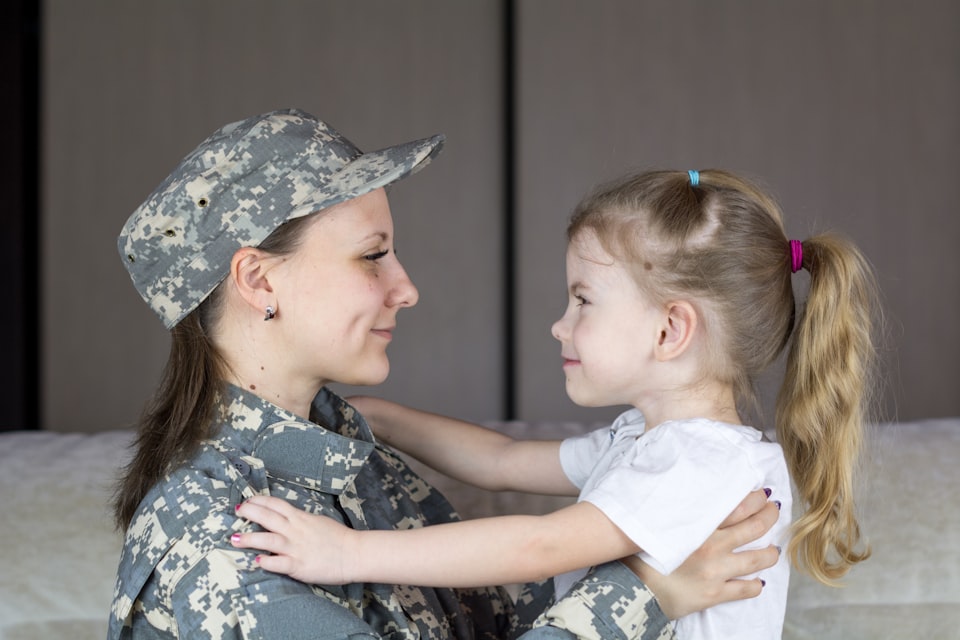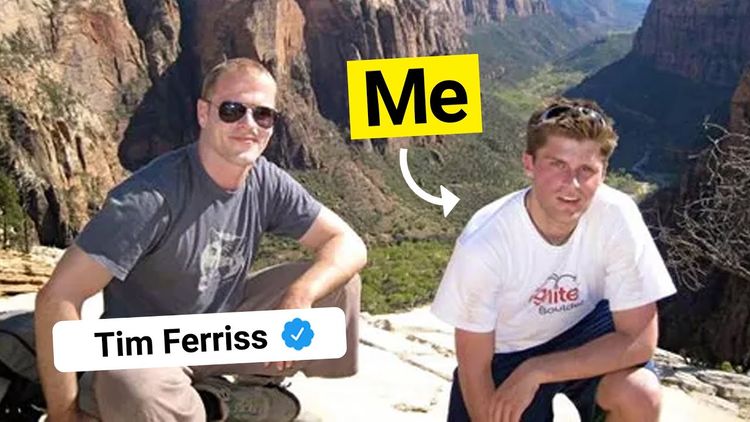How Play Can Heal Strained Relationships and Rebuild Families
Shirley Wu's painful relationship with her mother caused her to crave the loving bond she saw in others. Her military deployments allowed her to escape her emotions, but eventually she had to confront her pain and begin her journey towards healing.

I met Shirley Wu three years ago. She purchased 300 copies of Play It Away, and asked me to donate them to fellow soldiers and veterans. She’s passionate about helping people recover from PTSD and burnout (and preventing suicide), and through our mutual love of play, we quickly became friends.
In this post, Shirley reveals how she overcame pain she’d carried with her since she was a child. Our hope is to help readers gain empathy and compassion for their elders, and — if applicable — to break cycles of emotional abuse. For many people, the deepest source of pain they’re burdened with is the sense that they’re unloved by their caretakers. But that can change.
Take it away, Shirley:
For as long as I can remember, I’ve had issues in my relationship with my mom. While other children had moms that they ran to for support and encouragement, I always felt like my mom was cold toward me. There was this underlying tension — a power struggle — like she was trying to force her ideals of what a child should be on me. I would try to break the mold, but I could feel my mother judging me. It felt like I was never good enough.It was hard for me to feel a connection with her as a mother-daughter pair.I knew conceptually that she loved me, but I never felt loved.It was very painful and frustrating. I had a really lonely home life growing up. I left home as soon as I could to get away from my parents. When I turned 17 years old, I joined the Army.Deep down, I always craved for a loving relationship that I saw other mother-daughters having. I was really envious of people that had a good relationship with their parents, who never had to question feeling loved and supported. I also felt a deep sense of shame whenever other people talked warmly about their parents. I wanted to have that so badly, but I didn’t think that it would ever be possible for me. During 2008-2009, I was deployed to Iraq.I watched my fellow Soldiers anticipating the day they would reunite with their families again, while I was filled with dread. I was so “carefree” on the deployment. I didn’t have to deal with any of my emotions. All I had to focus on was doing my job and not think about much else. The threat of any external danger didn’t scare me much compared to the anxiety and stress I felt when I had to be around my family.I started developing workaholic tendencies, often working 14-16 hour days with no rest on weekends (you don’t really get weekends off in a combat zone). When I wasn’t “working”, I would find extra work to numb the need to feel anything. I never slept much when I was deployed. There’s a sick type of thrill in staying awake as long as possible that goes well with the adrenaline surge of being in a high-alert environment. Once, I worked 27 hours straight. When it was all over, I found myself laying in my bed, staring at the ceiling with the lights on, physically exhausted, but my mind was wide awake. When our entire unit came home, I chose to fly the last leg of it separately so that I didn’t have to see them having loving moments with their families. I took a couple of days to travel and visit friends once we came back to the United States, before flying solo back home to California.
When my parents picked me up, we hugged but I felt really awkward and acted like it was no big deal that I was gone for a year.I didn’t want them to show me any affection, talk to me too much, or ask any questions. Emotionally, I had shut down.The next year of my life was miserable. I started college and hung out with my friends, but whenever I was alone my mind went to a dark place. I had overwhelming anxiety and this sense of fear that I just could not pinpoint. I didn’t really know how to process any of my emotions, so I used alcohol to cope.
I was so ashamed of my family and friends ever finding out how messed up and alone I felt that I isolated myself.On the outside, everything looked fairly normal, but deep down there were many days when I wished that I would die. The only reason I didn’t was because my pride kept me from letting my life fall apart.During 2011-2012, I deployed again, this time to Afghanistan. I felt good, returning to that adrenaline-filled environment that I loved escaping to. I could work myself to my limits and not worry about home.
I was addicted to that feeling that I would get right before I burned myself out.However, just like my previous deployment, I knew I had to go home again someday. I dreaded that. When I finally went home, I couldn’t keep it together anymore. I expressed my anger at everything and everyone. I blamed all my stress on my deployments and hated the Army.For the next three years, I did everything I could to heal, and I made a lot of progress. I only did so because, finally, my body couldn’t hold in all the emotions anymore. I started having uncontrollable tearful outbursts all the time. I started my healing journey out of my will to survive.
Even though I wasn’t in any physical danger, I felt like I my body was going to shut down on me.I felt like at any moment my entire life was going to spiral out of control. It was either choose to start working through my emotions, or be non-functional. I had to finally deal with it and really start taking care of myself.In 2015, I went to Boulder Crest Retreat for Military Veterans. During this retreat, one of the things that we had to do was draw out family diagrams so that we could recognize patterns in ourselves, our parents, and our grandparents — the patterns of trauma. That exercise was really good for me, because it helped me develop a lot of empathy for my mom. Instead of just seeing her impose her ideals on me, I can now see why she was the way she was, how that could’ve come from her parents. Something clicked in my head during the exercise:
All of my childhood trauma wasn’t her purposely trying to hurt me, but just a result of doing what she knows.Everyone unconsciously acts out their own experienced traumas until they actively acknowledge the pattern and break the cycle.I started to recognize that my earliest childhood hurts played out in many negative experiences of my adult life. Besides anger issues from deployments, I also had plenty of bad relationship stories to draw from. The same issues played out over and over again, even though I thought I’d dealt with them. What I hadn’t changed was my way of life and the entire state of my being. Situations and problems changed, but the limiting scripts, the beliefs, and the deep pains were still there. One of our providers explained to us the truth behind anger.
Anger is not a real emotion. Rather, it is a combination of fear and sadness.Beneath the anger I felt toward my mother was a deep fear that I wasn’t worthy of her affirmation and attention, unless I acted according to her expectations.I was truthfully very sad that I felt like my mother didn’t love me for me.I carried this script into my adult life by becoming a workaholic and never letting myself do anything creative or fun. Whenever I did do something other people considered “fun,” I could never shake that underlying sense of guilt. I sabotaged my relationships because I could never allow myself to truly let go and enjoy anything happy because I felt undeserving.After this powerful exercise that solved a lifelong puzzle for me, we did something even more powerful. We immersed ourselves in this new script and acted out a conversation with the person that each of us (the other participants) struggled to connect with.
It was like children playing dress up and acting out different characters as they learned to understand the world.Play took away the risk of actually getting rejected and hurt because it was just pretend. I felt like I was just an actress playing a role. One participant played the role of my mother while I faced my conflict head on. I felt safe because I knew that it wasn’t real, that no matter how much emotion it stirred up, it was just pretend and I could step out of role at any time. During the role-playing, I started to tense up and lash out at my pretend mom. Then my pretend mom shifted her words and reflected more compassion and acknowledgement of my feelings, based off of what she’d learned about me during the family diagram exercise. Armed with this new sense of empathy for my mom, I began to open up and feel connected to my mom. I actually cried and worked through some my feelings of hurt and sadness (previously disguised as anger). Since the retreat, my relationship with my mom has been a million times better.I don’t avoid her phone calls or have anxiety and stress when I talk to her now. We’ve changed our entire dynamic and I actually take the initiative to call her because I want to. For the first time in my entire life, I feel loved by her. Besides eliminating the stress and anxiety, many of my problems associated with feeling unworthy have also disappeared. I actually allow myself to feel joy and just have fun, instead of constantly feeling guilty. I can now be myself and act according to how I feel, rather than do things just to please people around me.There’s now a state of contentment, instead of the momentary highs that punctuate the states of anxiety and stress. There’s no pressure to perform, or to put up an image. Just permission for me to treat life like play, and enjoy it. From this state of calm, I have been able to tap into creativity and talents that I didn’t even know I had. My best work doesn’t feel like work at all. I’ve started taking walks in nature. I actually notice the trees and the birds. I feel the environment around me much more vividly than I have in years. I know what it means to feel present. It’s a beautiful world, and I’m finally able to experience it.





Member discussion